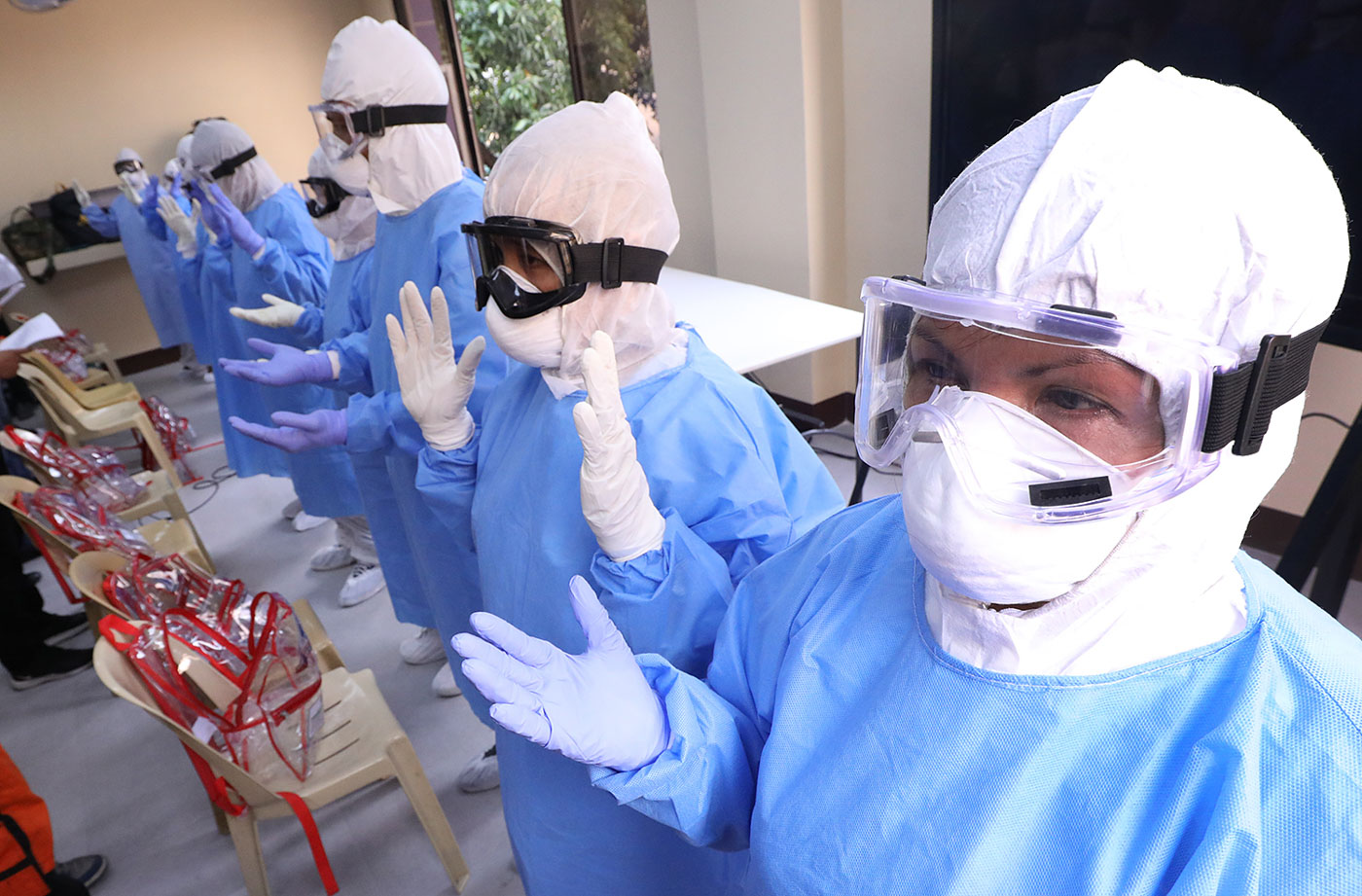Monday, 20 April 2020

With the overburdened hospitals seen during the COVID-19 pandemic, the Philippine situation highlights the need to adopt bold health reforms that reimagine the role of communities in addressing public health threats
Healthcare in the Philippines has always been strongly associated with hospitals. With COVID-19 pandemic overwhelming the capacity of our medical centers, redirecting the focus of our interventions to the communities is of paramount importance.
Factors such as good governance, public investment, and political will are known to influence a country’s health system. However, engaging communities to address public health threats are often times overlooked thus not maximized. The sooner we realize that communities are potent and strategic points for health interventions, the sooner we will have a more efficient and equitable health system.
In the Philippines, the hospitals serve as the first point of contact for people with illness regardless of its severity. Eventually, this results to disproportionate utilization of specialists’ services as primary healthcare is bypassed. In this COVID-19 pandemic which regarded judicious use of manpower and resources as a necessity, challenges abound in relation to implementation of gatekeeping mechanisms and observance of referral protocols. This situation supports the idea that an efficient health system demands that citizens understand how to engage it and how undue use of resources may spell life and death for another person.
At the national level, the Department of Health (DOH) expanded testing, procured more personal protective equipment, streamlined data collection and management, and are currently exploring public-private hospital partnerships. As the number of COVID-19 cases continue to rise, the burden of addressing the pandemic shifted from the national government to the local government units (LGUs) while patients who are usually managed in institutions are now being monitored in the communities. Since healthcare is decentralized in the Philippines, this means that LGUs have varying level of preparedness in handling the situation.
However, what is still unclear with the current initiatives is the participation of the community in the COVID-response.
Participatory identification of health concerns
In the past few weeks, the public has been bombarded with reminders such as handwashing and observance of physical distancing. Beyond these individual interventions, the need for collective responses to the pandemic must be underscored. As communities are deemed experts in their own varied experiences, they are in the best position to identify their needs. LGUs should institutionalize participatory mechanisms in crafting its own COVID response plan This is to ensure that the plan is not just comprehensive but implementable and acceptable to the community as well.
Healthcare viewed from the lens of the neglected and unseen
Health of marginalized and unseen groups should not be an afterthought in any health response. These groups include the poor and homeless, people deprived of liberty, and those confined in psychiatric institutions among others. The right to health should not be compromised by one’s socioeconomic status. A community of solidarity can act as a safeguard to ensure equity concerning these marginalized groups. The barometers for the effectiveness of our public health programs should be recalibrated and evaluated according to how well we make halth care accessible to the often neglected and unseen.
Democratization of health as the way forward
The COVID pandemic ripened the opportunities for systemic health reforms and active citizenship to address public health concerns. The post-pandemic agenda should still be focused on strengthening the health system by addressing the inequities in the six building blocks of health (manpower, infrastructure, etc) and adopting an all-of-government and all-of-society approach to address the social determinants of health. On top of those, serious conversations on integration of data science and technology in healthcare, promotion of welfare of health professionals, and increasing the state’s responsibility for the health of its citizens must be prioritized.
All these system improvements must contribute to the realization of a democratized health system grounded on solidarity where the community recognizes its role as frontliners in addressing health concerns. Initial steps include increasing capacity of the general public so they can perform basic and essential health interventions, developing programs that encourage task-shifting (devolution of specialist tasks to non-specialists), and adopting policies that place equal emphasis on community and institution-based care.
Once we increase the agency of people to take care of themselves and stretch their understanding that the responsibility to care for others is a moral responsibility, the health system will be better prepared to address future public health threats.
This article first appeared on Friedrich Ebert Stiftung Philippines.